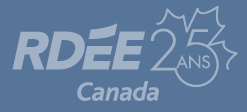Nunavut’s Francophone Community: Small, Highly Active and Well Integrated
Nunavut is a vast Northern region that separated from the Northwest Territories in 1999 to give more autonomy to the Inuit who make up 85% of the population. Nunavut’s francophone community consists of some 500 people, mainly in the capital Iqaluit. However, it is highly active and has played a key role in the region for decades. Francophone services, most of them in Carrefour Nunavut, include a community radio station and newspaper, a performing arts venue, a community theatre, a daycare centre, a school, and various health services. Some 80% of Nunavut Francophones were born outside the territory, mostly in Quebec. The rich heritage of the French language helps unite and enliven this vibrant community.
Active and Well Integrated Community
Francophones have lived among the Inuit of Canada’s Far North since the early 20th century. Sailors, shopkeepers, teachers, clergy, and administrative staff have not only raised the profile of French in this vast region, but in many cases played key roles in Nunavut society—giving weight and visibility to the present-day territory’s small number of francophone residents.
Visitors to Nunavut’s annual Toonik Tyme festival, held every April, can see for themselves how Francophones have fit into the majority Inuit community and culture. Many Francophones play an active part in the festival (dog sled races, igloo-building contests, community feasts, dance events, etc.). A large number speak Inuktitut (the Inuit language) and some have Inuit spouses. The outfitting company Inukpak lets French-speakers immerse themselves in Inuit heritage and culture.
Nunavut’s major francophone events take place in March during Mois de la francophonie and Journée internationale de la francophonie. These events (opening banquet, community meals, shows and concerts, film screenings, theatre workshops, improv contests, Super Francourse rally, Gala des entrepreneurs, etc.) seek to promote the French language and its many cultural expressions. The Uiviit Award (Uliviit is Inuktitut for “francophone”) goes to the person deemed to have made the biggest contribution to the francophone community in the last year, while the Le Frileux Award goes to the best volunteer. Throughout the year, Nunavut offers a wide range of social and cultural services and events to help Francophones connect with their language and culture.
Historical Milestones
Nunavut comprises the northernmost regions of central and eastern Canada. The Inuit claims that led to its creation in 1999 stem from the cooperative movement that began in George River (now Kangiqsualujjuaq) in 1959. These Inuit cooperatives and their rapid spread ended the Hudson’s Bay Company’s near-monopoly over trade in the region. The resulting growth in autonomy led the Inuit to demand that the federal government grant them authority to manage their own communities and lands. In response, the government granted the region—which counted just under 32,000 inhabitants in 2011—political status equivalent to that of Yukon and the Northwest Territories.
Most Francophones have tended to go to the eastern part of present-day Nunavut. For example, in 1904 the federal government commissioned Captain JosephElzéar Bernier, a Quebecer, to take official possession of the Arctic on Canada’s behalf. Captain Bernier made several expeditions, both for the government and on his own initiative, to explore the region and bring supplies to the Inuit. He spent several winters there and some of his crew members took Inuit wives.
Religious orders with high numbers of Francophones administer schools, teach the Inuit, and create parishes. In the 1970s, federal offices in Frobisher Bay (present-day Iqaluit) were staffed by large numbers of Francophones. In 1981, this led to the creation of the Association des francophones de Frobisher Bay—initially to obtain French-language rebroadcasts of Montreal Canadiens hockey games! The Association later became the Association francophone d’Iqaluit in 1987 and then the Association des francophones du Nunavut in 1997.
Getting to Know Nunavut’s Francophone Community
In 2011, some 480 Nunavut residents (1.4% of the population) declared French as their mother tongue. In the same year, some 1,200 people (4% of the population—the lowest ratio in Canada) said their French was good enough to hold a conversation. Most native French speakers were from Quebec or another Canadian province, and just 20% were born in Nunavut. The region attracts almost no Francophones from abroad.
The Association des francophones du Nunavut, which represents Nunavut’s francophone community, is a driving force in its development, especially in matters of education. In 1982, francophone parents in Iqaluit asked the Northwest Territories Department of Education to offer French-language courses. In 1985, the Department began offering a half hour of French-language instruction per day. In 1993, the Baffin Divisional Board of Education and the Northwest Territories Department of Education introduced a French first-language curriculum. In 2001, thanks to efforts by the Association des francophones du Nunavut, the French-language École des Trois-Soleils was built in Iqaluit. Two years later, the Commission scolaire francophone du Nunavut was established. The Commission has authority over the largest land mass in Canada but the smallest number of students—all of them enrolled at École des Trois-Soleils, the only French-language school in Nunavut and the northernmost French-language school in the world.
The vitality of these Francophones and their deep connection to the French language may explain Iqaluit’s high number of French-language services and activities and the esteem in which they are held by the Inuit majority. During the Toonik Tyme festival, for example, where Inuit hold traditional activities and games to celebrate and share their culture and heritage with non-Inuit residents and tourists, the opening ceremony is in Inuktitut, French and English and most events are in a combination of all three languages—a mark of respect and recognition highly appreciated by the francophone minority.





